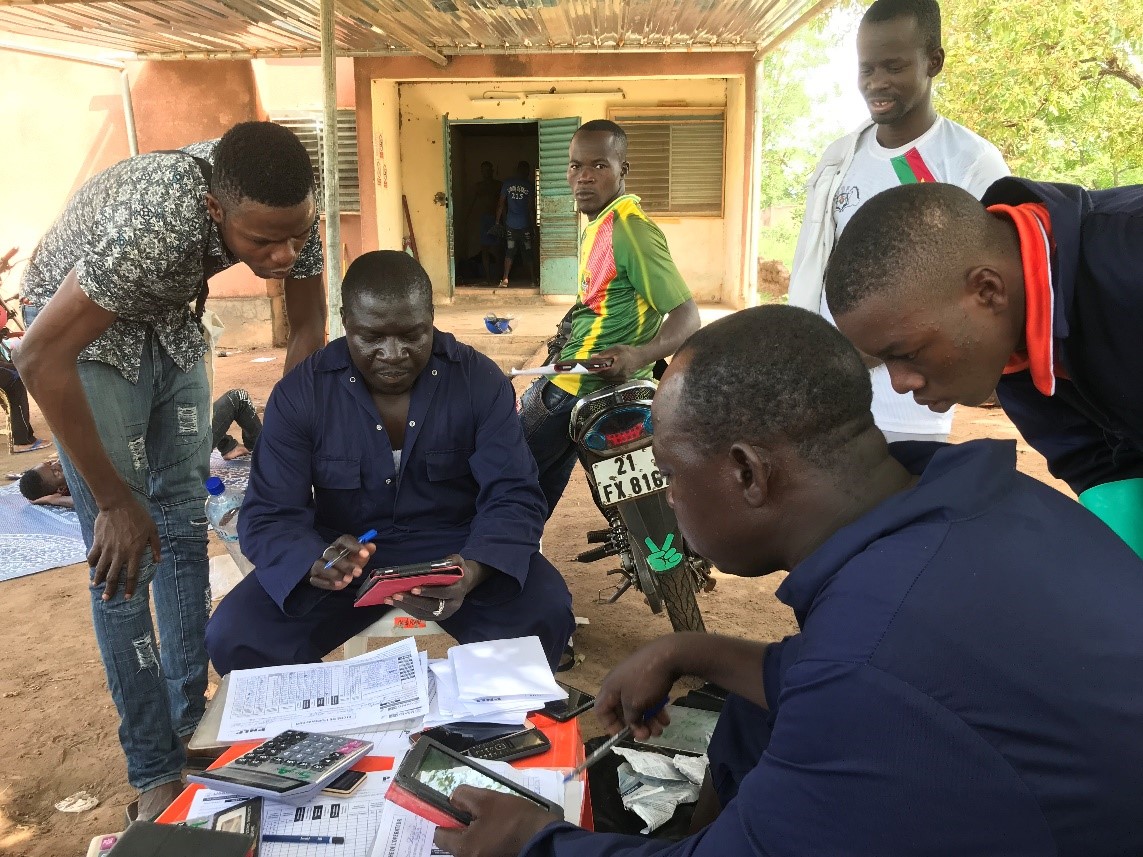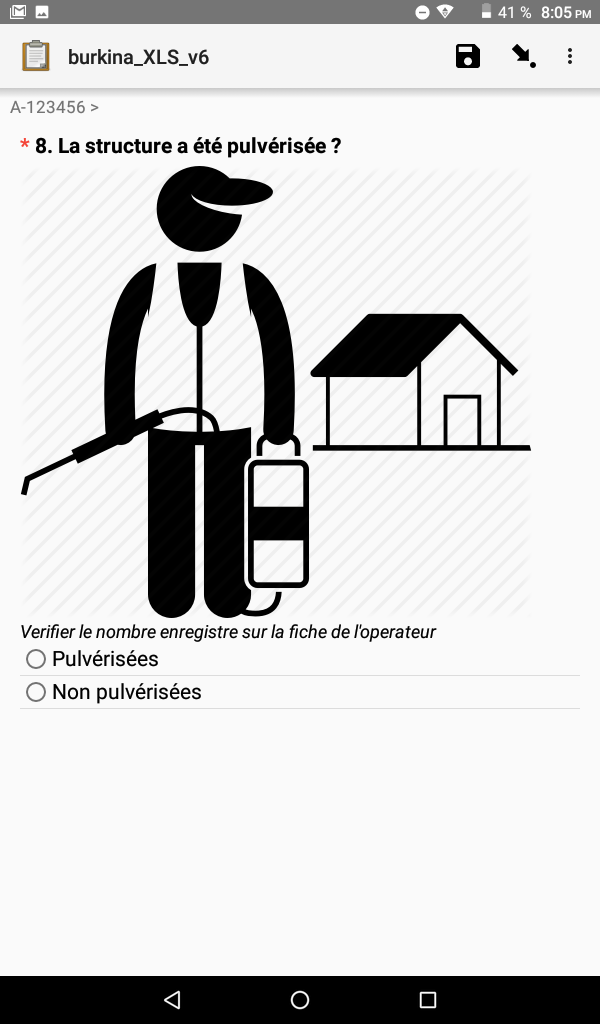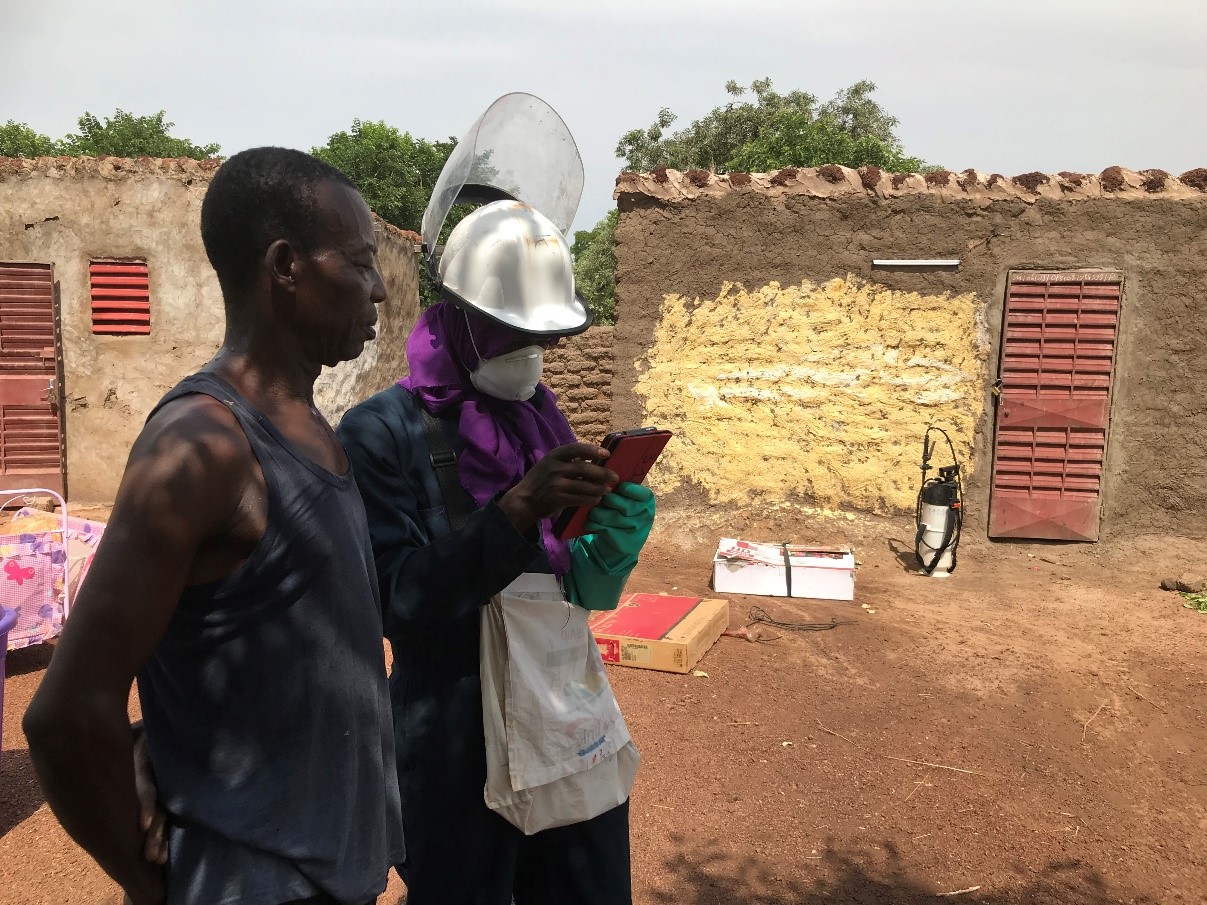Field-Based Mobile Data Collection in Burkina Faso Helps Improve Spray Coverage

Indoor residual spraying (IRS), proven to reduce the burden of malaria, entails spraying the interior walls and ceilings with an insecticide that kills malaria-carrying mosquitoes. IRS requires high-quality data to plan, implement, and track progress during a spray campaign. Having real-time data readily available and accessible facilitates reporting and decision-making on the ground without delay, and more quickly mitigates operational challenges. Until recently, field teams relied on paper data collection forms, which required an additional step of manually entering data into an electronic system, delaying the time between collection and the data being processed for use in decision making. That all changed when the PMI VectorLink Project piloted its mobile data collection strategy in Burkina Faso during the 2019 spray campaign.
Traditionally, spray operators serve as the primary point of data collection. Once they’ve sprayed a house, they record the home on their data collection form. If a home could not be sprayed (e.g. the head of the household was not home to accept IRS), the spray operator would note that on the data collection form. At the end of each day, spray operators would return their data collection forms at the operation site where data clerks then entered the information into a computer. The data is then cleaned, analyzed, processed, and sent to a global server where the information can be accessed from a real-time database.

Now, with mobile data collection, the need to manually enter data is removed – along with potential data entry errors that can skew the data overall and influence results. During the pilot, 547 spray operators across all three spray districts (Kongoussi, Solenzo, and Kampti) collected their household data using mobile tablets, each set up with the Open Data Kit (ODK) application. The ODK application was configured specifically for household-level data based on the standard, the paper form that spray operators were familiar with and formatted to reduce data entry error. Once collected via the mobile tablets, data is then synced to the project’s DHIS 2-based VectorLink Collect server on a daily basis for analysis and reporting.
IRS can require thousands of people to work together in a short period of time to reach a set of targets. Improving processes and procedures to increase efficiency and save costs is essential for sustainability. Field-based mobile data collection speeds up the team’s ability to identify and respond to problems, allowing the team to better serve the community by protecting them more effectively from malaria.
For instance, the VectorLink team was able to make quick and informed decisions in regards to the improvement of spray performance, by immediately intensifying mobilization activities in response to high refusals in certain areas with specific and adapted messages. The project plans to scale mobile data collection in 2020 IRS campaigns in Benin, Cote d’Ivoire, Mali, and Senegal as well as continue its use in Burkina Faso.
While conducting this pilot, VectorLink Burkina Faso sprayed more than 200,000 structures, protecting more than 580,000 people, including 92,000 children under five years of age and 11,000 pregnant women.


